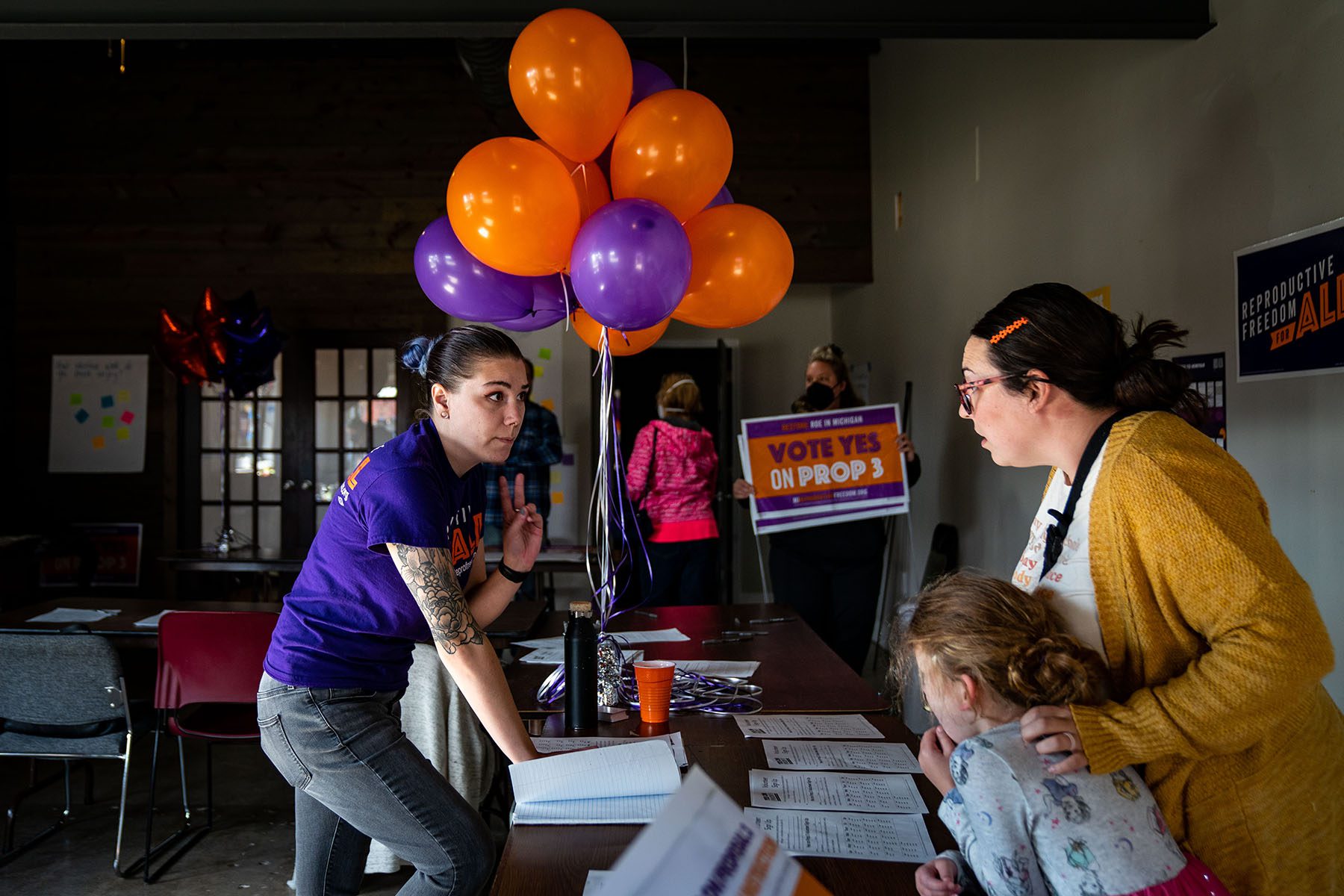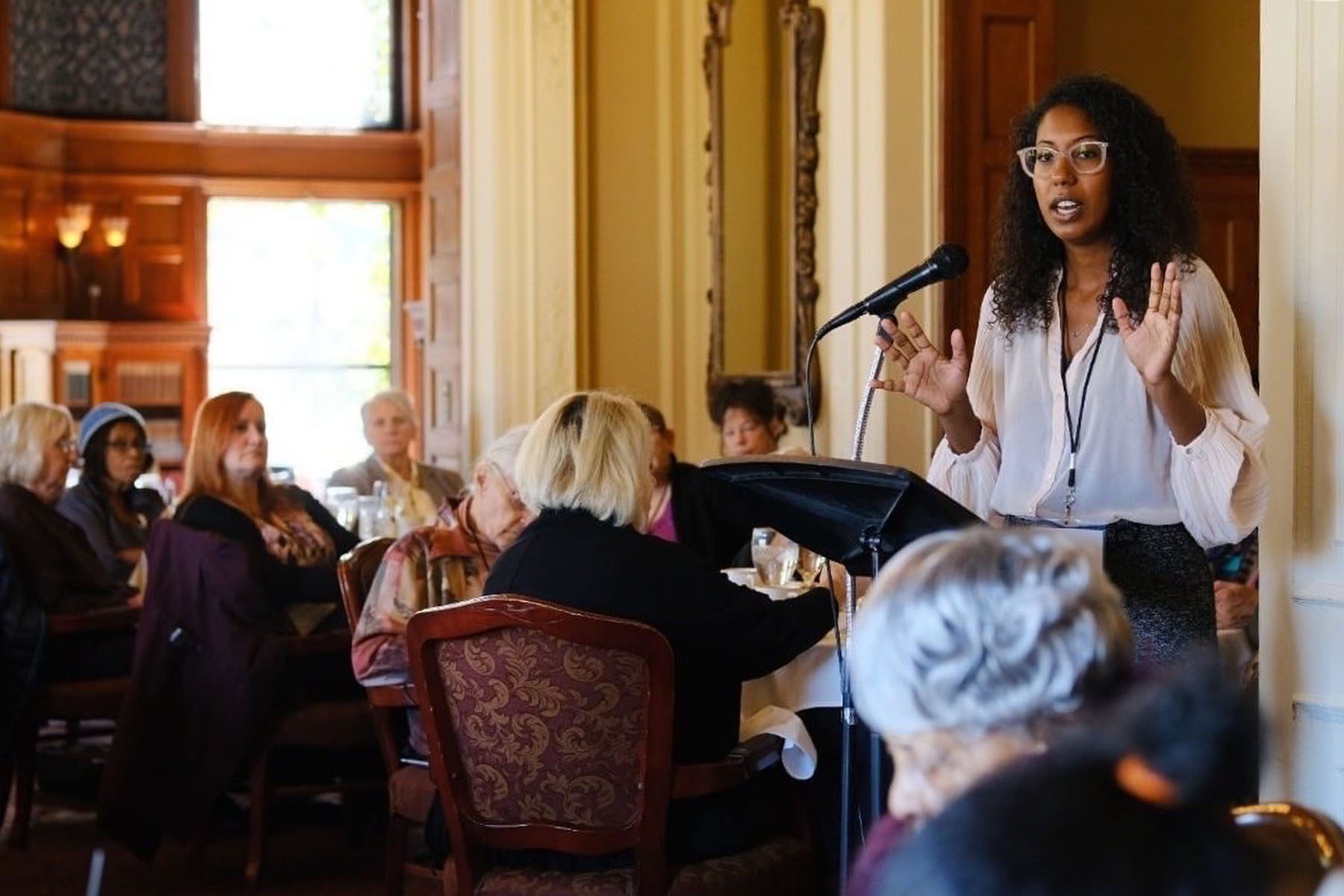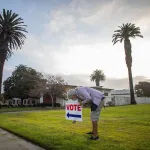Bonsitu Kitaba was among the many new American citizens to cast her first-ever vote in the 2022 midterm elections.
But Kitaba’s first vote held extra significance: A constitutional amendment that she co-wrote and worked to pass was on her ballot. The Reproductive Freedom for All amendment, or Proposal 3, passed by a margin of 13 points and enshrines the right to abortion access and broader reproductive freedoms into Michigan’s state constitution.
“I think that’s an ultimate career highlight,” Kitaba, deputy legal director of the American Civil Liberties Union (ACLU) of Michigan, told The 19th. “I don’t think I could top that again.”
Kitaba said it was “surreal” to receive her absentee ballot, turn it over to the back to see the 100-word summary of the constitutional amendment she helped write and realize her vote would be one of the ones to pass it. “Something in the universe made that happen,” she said.
“I was really focused on getting this constitutional amendment qualified for the ballot, collecting enough signatures, overcoming all of the hurdles to get there,” she added. “And I don’t think it really sunk in until a couple days after election night, after we won, that this is actually real.”
Kitaba grew up in Canada, the daughter of a Guyanese mother and an Ethiopian father. She said being the daughter of two immigrants pushed her toward a career in civil rights law. Her father continued to advocate for the freedom of those in his home country after coming to Canada as a refugee.
“Both him and my mom were very politically active,” she said. “He’s still very much involved in that. And I think it really inspired me to work in human rights and civil rights work.”
Kitaba moved to Michigan in 2011 to attend law school at Wayne State University. She knew immediately that she was at home in Detroit and wanted to practice law in the community there.
“I never imagined that I would one day become a citizen and then be able to vote in an election on something that I helped craft,” she said.
The seeds for Proposal 3 were first planted back in 2018 and 2019 by ACLU advocates nationally and in Michigan. By that point, the ACLU and other groups had spent decades fighting abortion restrictions proposed by Michigan’s Republican-held state legislature, which flipped to Democratic control in 2022. And they saw Michigan, which passed two major citizen-led initiatives on voting rights and redistricting reform in 2018, as fertile ground for an ambitious measure protecting abortion access.
“It’s not a coincidence that Michigan was the first out of the gate here,” said Jessica Arons, the ACLU senior policy counsel who co-wrote the language of Proposal 3 with Kitaba. “They have the capacity, the know-how, the savvy and the smarts to get this done, and so there was a real meeting of the minds.”
Kitaba worked closely with Arons to co-author a first-of-its-kind constitutional amendment that would positively affirm a right to not only abortion access but also contraception, miscarriage care, fertility treatment, and pre- and post-natal care.
“It was a somewhat arduous experience, but also really rewarding and very exciting,” Arons said. “I felt I had really great partnership with Bonsitu. It was nice for each other to be a sounding board for one another.”

The two also collaborated with a wide range of reproductive rights groups, advocates on the ground and constitutional lawyers who had litigated abortion cases on crafting an amendment that would protect the broadest range of reproductive rights while holding up under legal scrutiny.
“We gathered feedback on how to strengthen this constitutional amendment to make sure that it’s interpreted the right way — the way that we want it to be interpreted — and that it’s not narrowed and it’s not used to harm people,” Kitaba said. “Those are really tough questions.”
Their work took on a renewed urgency when the Supreme Court agreed to hear Dobbs v. Jackson Women’s Health, the case in which the court would go on to overturn Roe v. Wade. Kitaba said she, Arons and their collaborators were “scenario-testing 100 times over” on how the amendment could be challenged or undermined.
“It’s the most comprehensive constitutional limit out there protecting reproductive rights, and I think it will hopefully inform other constitutional ballot measures moving forward,” Kitaba said of Michigan’s amendment.
Both the expansive wording encapsulating a broad range of rights and the buy-in from advocates and organizers on the ground were crucial to driving momentum behind the amendment and mobilizing voters to turn out, Arons and Kitaba said.
“People felt invested in the effort and felt like they saw their priorities reflected in the language,” Arons said. In addition to passing Proposal 3, voters reelected the three Democratic women at the top of the ticket, and gave Democrats control of both chambers of the state legislature.
Arons said that while Dobbs was a “low point,” the immediate momentum behind the amendment and the number of volunteers who signed up to collect signatures was “thrilling” and “gratifying.”
“People were craving for ways to get involved and do something to fight back,” she said. “It was really great to be able to have this as one solution to turn to.”
Tom Bonier, a Democratic strategist and CEO of data analytics and research firm TargetSmart, told reporters that he saw the high level of intensity behind the measure when he was approached multiple times by canvassers collecting signatures on a short trip to Michigan in the days after the Dobbs decision.
“The first foot I stepped in Michigan, someone came up to me and asked me to sign a petition for the ballot initiative,” he said on the call hosted by Supermajority, a group focused on mobilizing women voters.
Kitaba said different aspects of the measure, whether ensuring the right to make personal health decisions or addressing disparate maternal mortality rates among Black women, resonated with different voters. “It really did motivate and touch everyone,” she said.
Before co-authoring the Reproductive Freedom for All measure, Kitaba worked on the 2018 constitutional amendment that introduced straight-ticket and no-excuse absentee voting, along with same-day and automatic voter registration in Michigan.
Kitaba said the expansions in voting options brought about by the 2018 amendment “absolutely” set the stage for the passage of Proposal 3.
“I witnessed myself hundreds of students standing in line in Ann Arbor at the University of Michigan, waiting in line to register to vote on the same day and then casting their ballot for Reproductive Freedom for All,” she said. “It was really a full-circle moment.”
Arons said 2022 was a “watershed” year nationally for the passage of ballot measures bolstering abortion rights and the failure of anti-abortion measures in Kansas, Kentucky and Montana. Voters in two other states, California and Vermont, also passed amendments this year establishing a right to abortion. Advocates are already looking to put similar measures on the ballot in 2023 and 2024.
“I think the through line is that people will really not tolerate their rights being stripped away,” she said. “And if you give them an opportunity to reclaim their power, they will — and ballot measures are certainly one way forward.”
Kitaba said the main lessons to take away from her own story and the success of Proposal 3 are that “immigrants can get it done” — and that democracy is something citizens need to fight to maintain and uphold every day.
“A lot of people are skeptical or jaded about ‘politics,’ but it’s so much more than that — our system of democracy in this country is so rich and beautiful,” she said. “And we take it for granted.”







